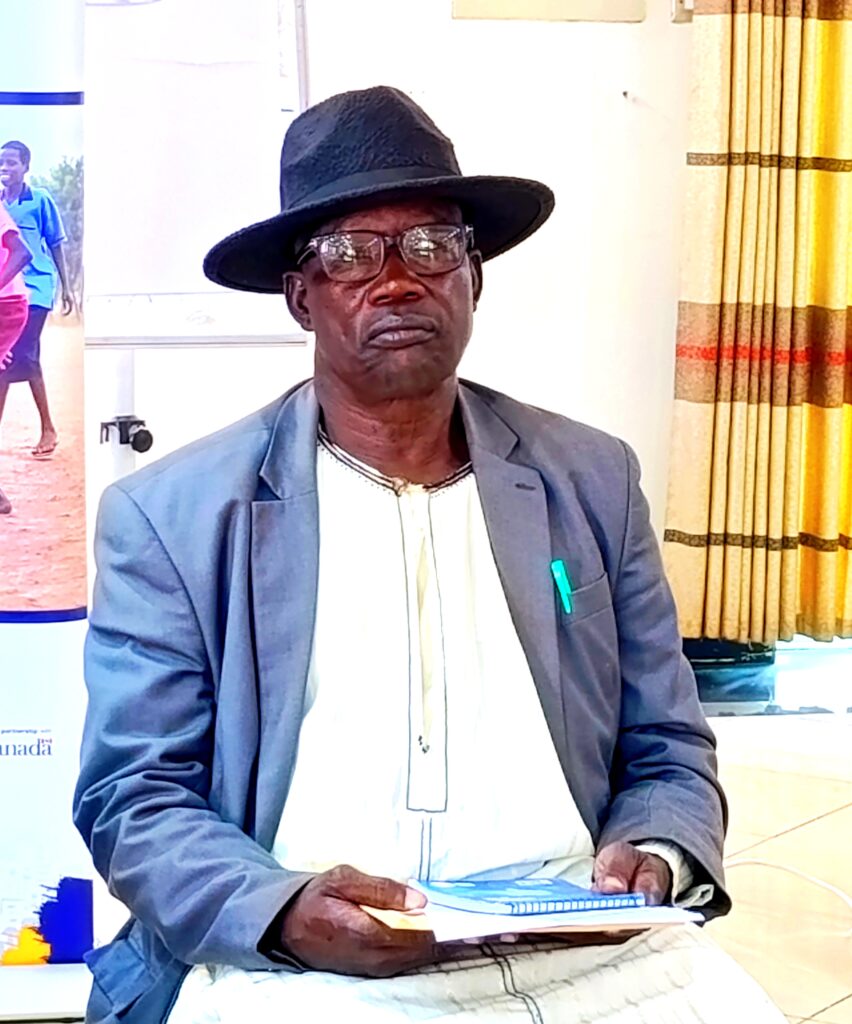WOMEN ACTIVISTS, CULTURAL LEADERS DRAFT FIRST MA’DI TRANDITIONAL MARRIAGE BYLAW.
By Bazio Doreen.
By Bazio Doreen.
Overcomers Women Activists (OWA) in partnership with the Ma’di Cultural Institution has drafted the first Ma’di traditional Marriage bylaw to streamline the tribe’s process of union between couples. The 10 page by law defines courtship, types of marriage, bride price, process of formalization of marriage, fines for rape and elopement, and marriage principles.
OWA is a Community Based Organization in Adjumani that advocates for the rights of women and girls while on the other hand the first substantial Ma’di Paramount Chief (Lopirigo) was voted in 2024 and is yet to be gazzeted by government. The Paramount Chief has however assumed full powers and is supporting chiefs to reorganize the Ma’di Cultural Institution.
The drafting of the bylaw that is to be approved by October 2025 is funded by Forum for Women Educationalists (FAWE), an NGO that is implementing the Sexual Health and Reproductive Education (SHARE) project in Uganda. The five-year SHARE project that ends in 2026 seeks to advance gender equality and increase the enjoyment of health-related human rights by vulnerable right-holders, particularly adolescent girls and young women.
Culture provides rules of sexual conduct between sexes which shape knowledge, beliefs, and practices regarding the sexuality of adolescent girls and influence Sexual and Reproductive Health Rights (SRHR).

On why the bylaw was drafted, Olga Lindrio, the Executive Director – OWOA, says the by law will support the Ma’di Cultural Institution to advocate for elimination of negative cultural practices and norms that hinder adolescents and young girls from enjoying their Sexual and Reproductive Health Rights. Olga also says that the by law is expected to streamline and regulate the Ma’di marriage practices.
“We expect the bylaw to reduce both forced and child marriages that contribute to both teenage pregnancies and Gender Based Violence. If you notice, Ma’di bride price has also since changed. Sometimes it is over charged, sometimes it is under charged. We want to eliminate all bad cultural practices related to marriage,” Lindrio said.
In affirmation, Dipio Josephine, the Community Development Officer, Itirikwa Sub County, notes that during the payment of bride price commonly referred to as “Kasurube”, young girls are tasked to escort the bride and greet the in laws which usually creates an opportunity for them to be defiled or sexually harassed.
“During the payment of Kasurube, we still see our young girls, being given to in laws. That they should go and greet the in laws. And yet we have divorced women or returnees. Then we also have the issue of uniform removal (nji), we need to have regulations on school girls who get pregnant because it lures them into early/child marriage,” Dipio noted.

However, His Royal Highness, Opi Suru Simon Baru, the Ma’di Paramount Chief, now says with the bylaw in place, cultural leaders will now fight and discourage the practice of ‘uniform nji’ which means that a girl is removing a school uniform for marriage since they have conceived and this is usually accompanied by a cost paid to the bride’s parents.
“In the draft marriage by law, we have clearly stated that payment of uniform nji is not Ma’di Culture. You be assured that we shall no longer have this uniform nji practice. We don’t want it because it is encouraging the parents to advocate for it since they anticipate gain from it,” Opi Suru said.
Opi Suru adds that: “we have clearly stated in the by law that any girl below the age of 18 is not allowed to participate in any traditional marriage activity commonly referred to as introduction. This will help to curtail temptation of girls getting married early or being impregnated. When these young girls are given brown envelopes for their participation, the in-laws start looking for them or asking details about them and that is how it all begins to unfold.”
Opi Suru also says the bylaw clearly states that defilement is a criminal case and thus should never be resolved by cultural leaders.
“Defilement is a criminal case. For us as cultural leaders we don’t entertain defilement cases in our chiefdoms,” Opi Suru said.
On the other hand, Okot Michael, the Magistrate Grade One, observes a changing trend in the way defilement cases are registered adding that only a quarter of them are reported. He also says that out of about 480 cases criminal registered, 232 involve adolescents.
“Unlike before, now days they bring both the boy and the girl who have defiled themselves. Families only come to court when they disagree. The court is used as legal procedure to make the culprit to pay and when this happens, you will never see a witness in court again,” Okot explained.
On his part, SP Masembe Herbert, the District Police Commander – Adjumani, notes that the by law will be of great help to the police because many parents are using unsuspecting men to trap them into allegations of defilement and forcing them to unfairly pay bride price.
“Sometimes as police we are very disappointed and our hands are tied to support further. One time we got a case where a man was accused of defilement and tasked to pay kasurube of shs 500,000/= and yet he was found on the road asking for directions to the neighboring Moyo District,” SP Masembe noted.
Meanwhile, the Ma’di Traditional bylaw recognizes both formal and informal Ma’di traditional marriage. The by law defines a formal marriage as one where bride price/bride wealth is paid and marriage certificate is issued to the couple by the area cultural leader. On the other hand, informal marriage refers to rape or elopement.
Punishment for eloping includes paying two heifers or Ugx 2,000,000/= in addition to expenses accrued by the family while looking for their daughter. If one elopes with a relative, a sheep is given for cleansing inaddtion to paying a bull, and a heifer. The by law also specifies requirements or items that are given to the family of the bride.
The drafting process involved 13 cultural leaders from Adjumani district including the Ma’di Paramount Chief and refugee leaders as well as 08 chiefs from Moyo District.
Before approval, the by law will be reviewed by a lawyer and other community leadership structures before it is translated into prominent local languages spoken in the Ma’di geographical area.
END.
